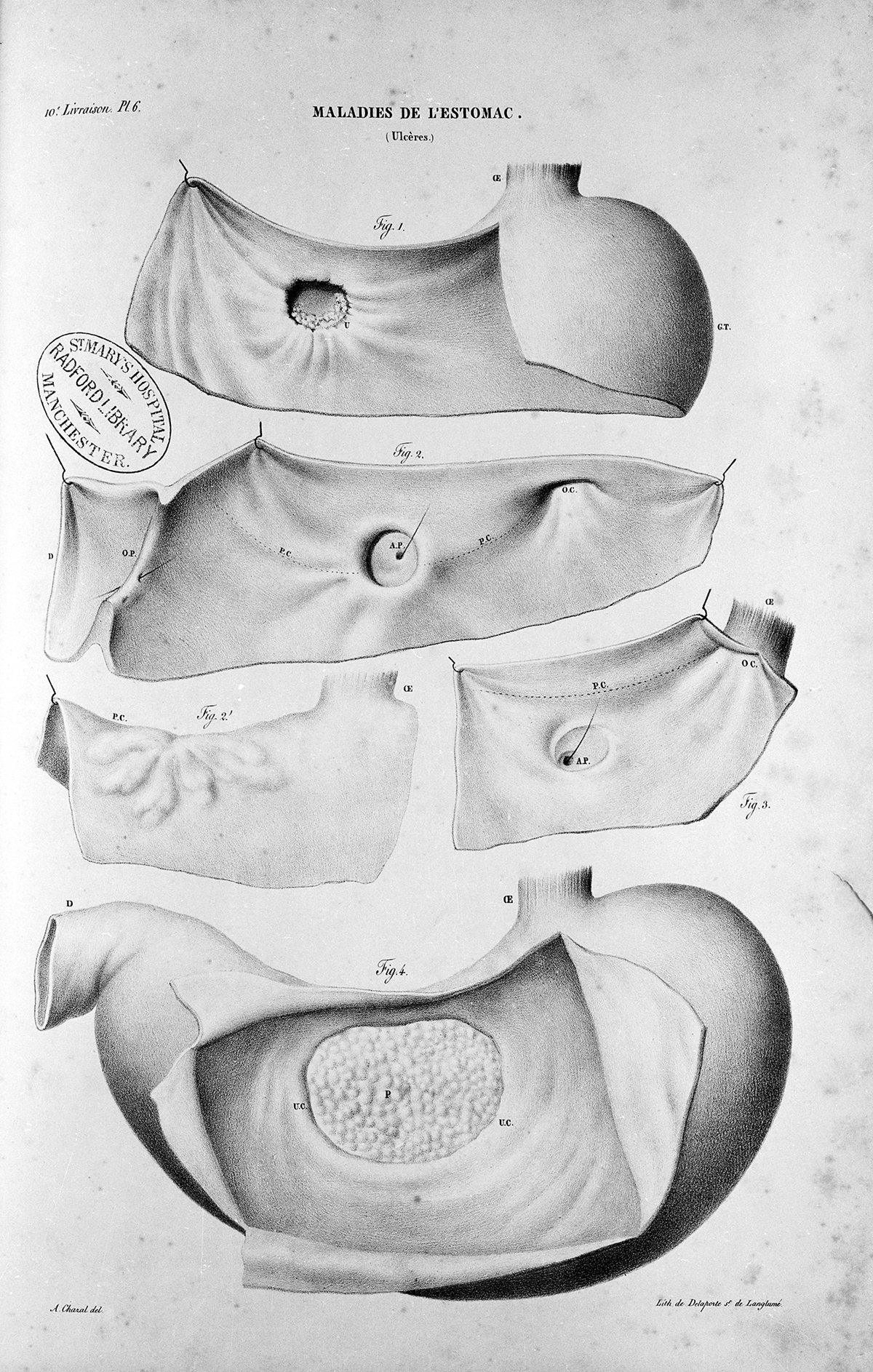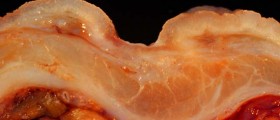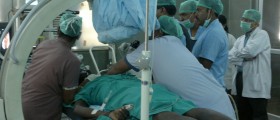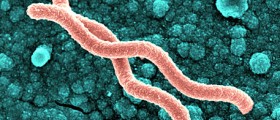
Definition
Ulcers are sores which are formed in the intestines in the stomach. Based of the place that ulcers are formed, they are called duodenal ulcers (if they are formed in the duodenum-lining of the stomach in the beginning of the small intestines), gastric ulcers (if they are formed in the lining of the stomach), or, rarely esophageal ulcers (if they are formed in the esophagus). Stomach ulcers and duodenum ulcers are commonly called peptic ulcers.
If not treated in time, stomach ulcers may bleed, or perforate the bowels allowing bacteria from food to inflame the intestines or blocking the food passage by narrow the intestines in certain places.
Ulcers size may vary from 1/7 to ¾ of inch in diameter and when they damage the stomach lining, juices, pepsins and acids which are extra amount of substances that are helping body to digest the food in the stomach can damage the intestines on that places where ulcers are formed.
Symptoms
Due to various types of ulcers, there is no unique set of symptoms but still some of them are common. These common symptoms may be vomiting, loss of appetite, nausea, loss of weight, blood in the stool or vomit tiredness or weakness (both symptoms of bleeding ulcer) etc.
Diagnostics
There are several ways to successfully diagnose the ulcers like endoscopic examination x ray or blood tests. X ray is painless and non evasive technique that doctors use in order to examine you for ulcers. After you swallow high contrast material, like barium, you are submitted to a series of x rays in suspected areas of your stomach.
Another method required to determine that you have ulcers may be gastroscopy, which is insertion of a small flexible tube down your throat, much like endoscope.
Endoscopy is another method used to determine the presence of ulcers. Endoscopy is performed with fiber optic instrument, which has tiny light, hook, and camera, called endoscope. Once inserted in the body, usually trough small incision on the stomach endoscope gives a surgeon a clear view of the inside of your stomach and if necessary ability to take a little sample of suspicious tissue for further analyze and testing.
Treatments
Best treatments of ulcers, beside introducing changes in your lifestyle and diet and lowering your stress levels are several types of medications, like antibiotics, proton pump inhibitors, mucosal protective agents and H2 blockers. If treatments are not effective in some cases surgery is required.
If you have ulcer you should stop drinking and smoking, avoid caffeine and spicy food and do not use anti inflammatory drugs like ibuprofen or Aspirin.

















Your thoughts on this
Loading...